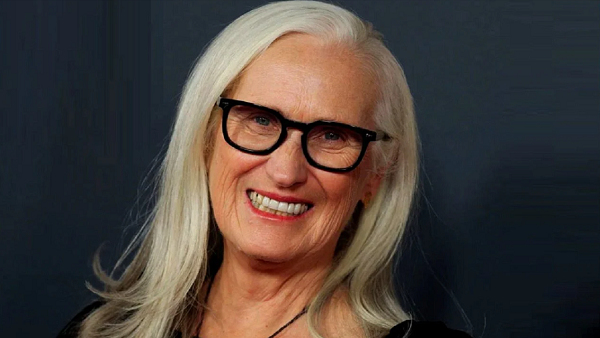Have you ever wondered how successful filmmakers make a profit while still ensuring that their entire team benefits? Jane Campion, the award-winning director and producer, has found her own solution to this dilemma through an innovative profit-sharing strategy. In this blog post, we’ll take a look behind the scenes of Campion’s business savvy and learn valuable lessons on how to create a sustainable and equitable working environment for all involved in the film industry. Get ready to be inspired by one of Hollywood’s most inspiring success stories!

Jane Campion’s Background
Jane Campion was born on September 13, 1957 in Wellington, New Zealand. She began her career as a journalist, working for the New Zealand Herald before making the switch to film in the early 1980s. In 1986, she directed her first feature film, The Piano.
Campion’s notable films include The Portrait of a Lady (1996), which won her an Academy Award for Best Director; Holy Smoke (1997), winner of the Palme d’Or at the Cannes Film Festival; and An Education (2009), which earned her an Oscar nomination for Best Director. She has also directed several television productions, including Top of the Lake (2013) and Good Girls (2015).
In 2017, Campion announced that she would be retiring from filmmaking.
| Real Name | Elizabeth Jane Campion |
| Nick Name: | Jane Campion |
| Birth Place: | Wellington, New Zealand |
| Date Of Birth: | 30 April 1954 |
| Age: | 69 years old |
| Height: | In Centimetres – 175 cm In Feet and Inches – 5′ 8″ |
| Weight: | In Kilograms – 65 Kg In Pounds – 166 lbs |
| Eye Colour: | Dark Brown |
| Hair Colour: | Brown |
| Education: | Chelsea College of Arts, Australian Film Television and Radio School, Victoria University of Wellington, Sydney College of the Arts |
| Religion: | Christian |
| Nationality: | New Zealand |
| Zodiac Sign: | Taurus |
| Gender: | Female |
| Sexual Orientation: | Straight |
| Kids/Children Name: | Alice Englert, Jasper Englert |
| Profession: | New Zealand filmmaker |
| Net Worth: | $40 Million |
How Profit Sharing Works in the Film Industry
In the film industry, profit sharing is a common practice among filmmakers. This means that a portion of the profits from the film’s sales are shared by all of the filmmakers involved in its production. This can include the director, screenwriter, producers, and stars.
Profit sharing can be an important part of maintaining filmmaking morale and creating a positive working environment. It can also help to ensure that each member of the filmmaking team receives an equitable share of the profits.
There are a few considerations that must be taken into account when implementing a profit-sharing scheme in the film industry. First, it is important to consider how much each filmmaker will contribute to the overall profits. Second, it is important to create a scheme that is fair for all concerned. It is important to monitor and adjust the scheme as necessary to ensure that everyone is getting their fair share of profits.
The Results of Profit Sharing in Jane Campion’s Movies
In Jane Campion’s films, profit sharing is a common practice. Profit sharing is when a company gives its employees an ownership stake in the company itself. This ownership stake can be valuable, as it gives employees a financial incentive to work hard and keep the company profitable.
One reason why profit sharing can be beneficial is because it encourages employees to work together towards a common goal. When employees are united in their desire to see the company succeed, they are more likely to put effort into their jobs. Profit sharing also creates competition within the workplace, which can spur employees on to make even more improvements.
The results of profit sharing in Jane Campion’s movies are evident throughout her body of work. In films like The Piano and An Angel at My Table, Campion showcases scenes of co-workers working hard together towards a common goal. This teamwork is especially apparent in The Piano, where co-workers lend each other instruments and help each other edit footage. This type of camaraderie contributes to the film’s overall success, as it shows that profits were not sacrificed in order to create this positive environment.
Profit sharing is an effective way for companies to encourage employee productivity and cooperation. It has beenproven time and time again to be a successful business strategy, and should be considered by any company looking to improve its bottom line
Takeaways for Business Owners
1. Jane Campion is a business savvy filmmaker and learned early on how to share the profits from her films with her collaborators.
2. Profit sharing is an effective way for business owners to incent their team and keep them motivated.
3. It can also be a powerful way to build trust and loyalty within a team, which can lead to more collaboration and innovation down the line.
